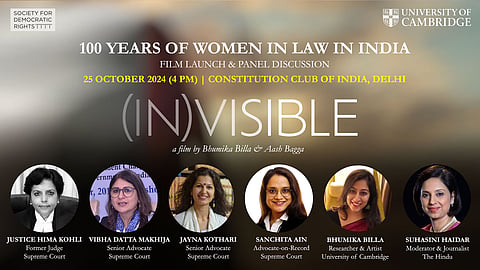
- News
- Columns
- Interviews
- Law Firms
- Apprentice Lawyer
- Legal Jobs
- हिंदी
- ಕನ್ನಡ

Women do not need quotas, but deserve their due in the legal profession in India, former Supreme Court judge Justice Hima Kohli recently said while arguing against need for reservation for women judges.